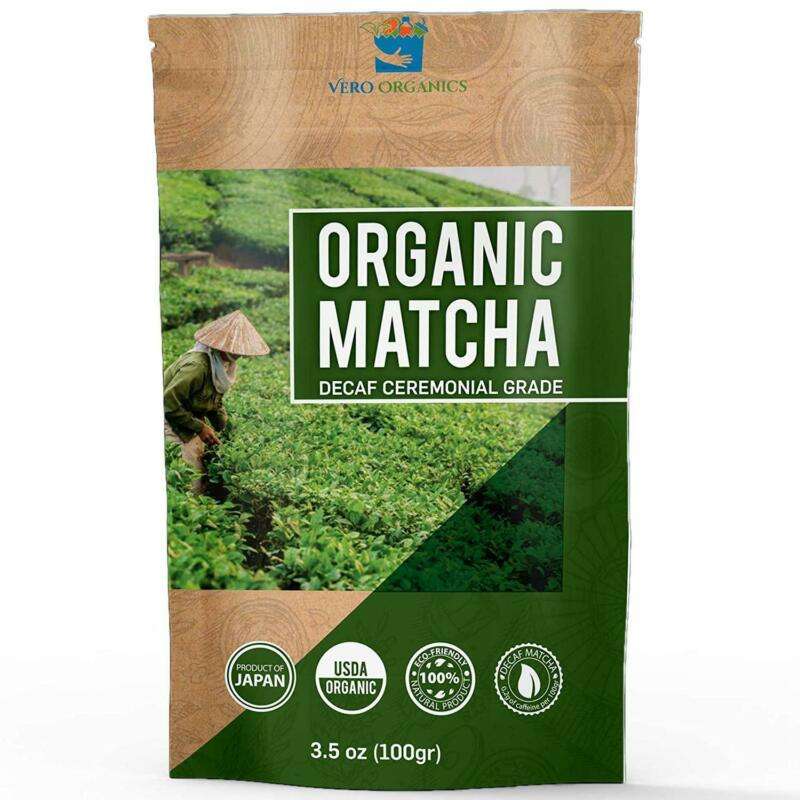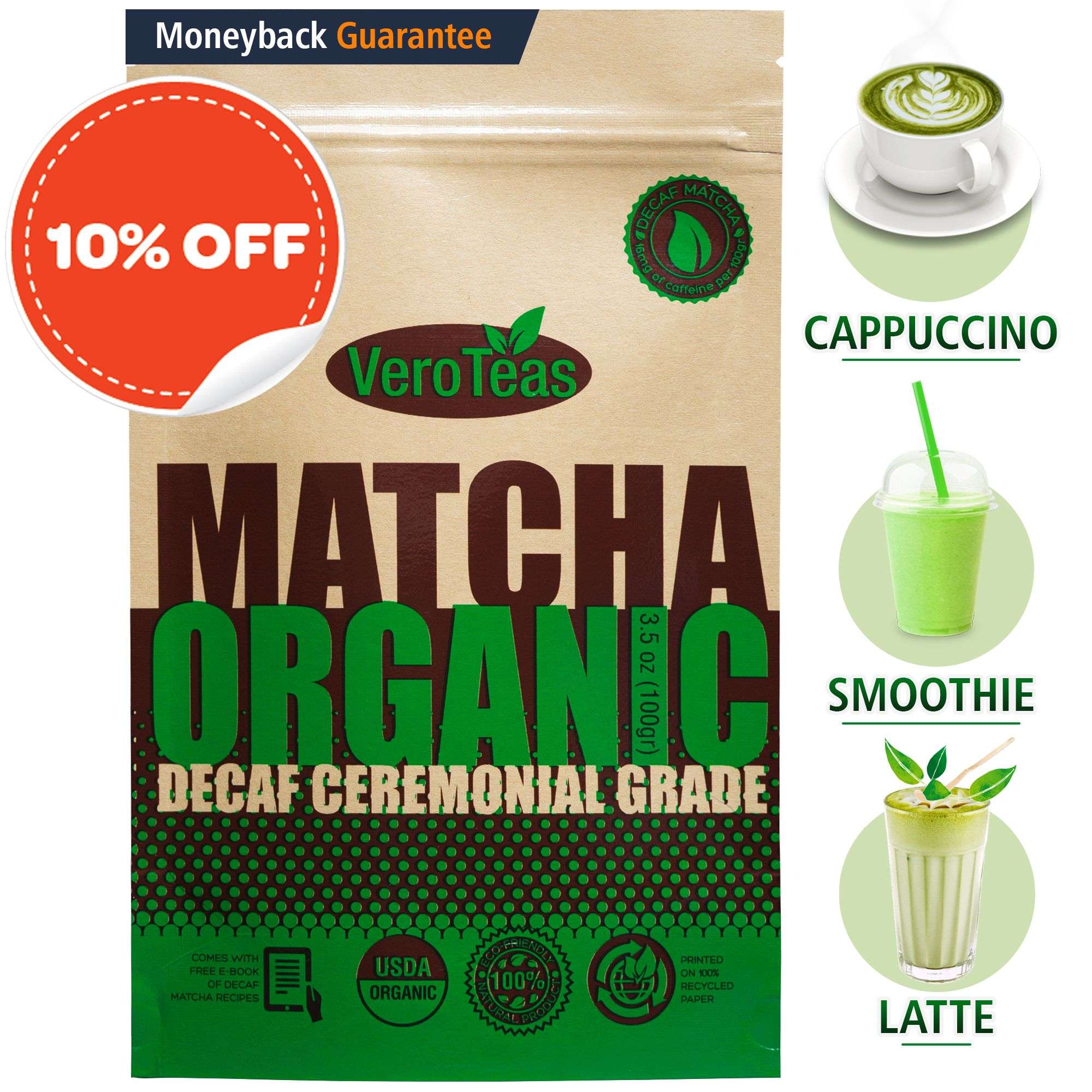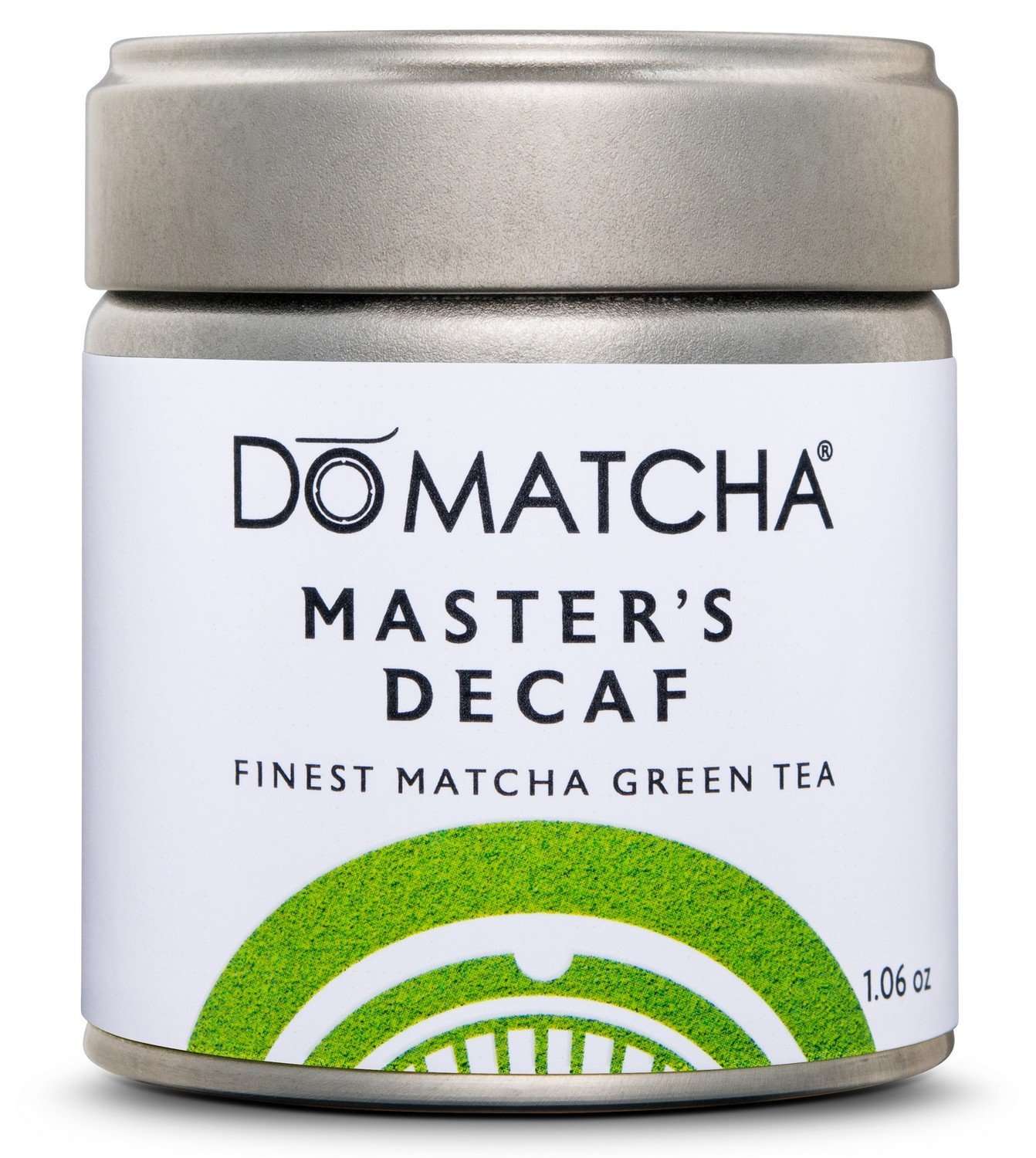The Difference Between Matcha And Green Tea
Matcha Green Tea is prepared from young plants that are at their peak, the leaves once cultivated are then dried and ground into a fine powder, this retains the natural nutrients of the tea plant leaves, but it is worth remembering that all teas are produced from the same Camellia Sinensis plant.
IE Green Tea is produced in a similar way, however our tea is never dried, so it retains more of those all important EGCGs and antioxidants that help our bodies to fight free radicals.
The tea leaves are roasted fresh also from young camellia sinensis plants at the peak of harvest. As soon as the tea is picked, we roast and brew, to preserve as many antioxidants as possible. We use pure spring water to brew our tea.
Is Matcha The Same as Green Tea?
The process of preparing Matcha differs greatly from the traditional Chinese preparation methods, however while grown in different countries they both originate from the same family of tea plant, that being camellia sinensis .
To sum up that question Matcha and Green Tea are from the same plant, matcha uses the whole leaf to produce a fine powder, where green tea is brewed taking the nutrients from the leaf.
When drinking matcha you are drinking the whole tea plant leaf, when drinking green tea, you are drinking a tea that is brewed using the dried leaves of young green tea leaves.
Is Matcha Better Than Green Tea?
Preparation Process
Summary IE Green Tea Vs Matcha Green Tea
There are no additional posts
Quick Links & Information
Benefits Of Drinking Green Tea
According to a U.S. National Cancer Institue study using laboratory animals, green tea contains potent antioxidants like catechin, that are more powerful than Vitamin C and beta-carotene in knocking out carcinogens and reducing the number and size of cancer tumors. Green tea . . .
- Eliminates free radicals and slows the aging process
- Prevents arterial sclerosis, deep vein thrombosis, heart attacks and strokes
- Regulates blood pressure
- Helps fight bacteria, viruses, influenza, dysentery, and cholera
- Fights mouth bacteria that causes tooth decay, gum disease and periodontal disease
- Eliminates piccolo, a cause of gastric ulcers
- Prevents bad breath
May Help Prevent Cardiovascular Disease
Researchers haveevidenced that the risk of cardiovascular diseases, such as stroke and heart disease, can be lessened through the consumption of green tea. This is likely to be because green tea has been suggested to reduce high cholesterol, which is one of the most significant risk factors for these diseases.
Also Check: How Many Carbs In Twisted Tea Light
You Can Have Your Matcha And Drink It Too
Matcha is a healthy and delicious choice for everyone.
If youre interested in trying it, try swapping a cup of Joe or traditional tea with matcha.
Whether you are using matcha to make a tea or adding it to your smoothie or baked goods, look for certified organic varieties for maximum health benefits, says Bannan.
And try Foroutans favorite way to do matcha: as a matcha latte, preferably iced.
I make it with ceremonial-grade matcha, almond milk, and a tiny bit of maple syrup for sweetness, says Foroutan. I also sometimes add a few drops of rose water if Im in the mood for something exotic.
About Ito En Matcha Green Tea

Ito En Matcha is one of the most famous matcha of Japan made from the best quality green tea leaves and is ground to perfection.
This sustainably grown and unsweetened matcha powder is of bright green color.
In addition to that, it has a great grassy and fresh taste that invigorates the senses with a velvety smooth feel.
Coming to the amount of caffeine in Ito En matcha green tea powder, it contains 35-70mg of caffeine content per cup. Moreover, it contains zero calories and no sugar.
Apart from this, the matcha powder easily dissolves in the milk and water without any sediment at the bottom of the cup. It is the perfect culinary-grade matcha.
Overall, Ito En matcha green tea delivers the health benefits that you would expect from high-grade matcha.
Also Check: Buy Kombucha Tea Online
Domatcha Master’s Decaf Matcha Powder
Authentic Japanese Green Tea, Ceremonial Grade
The perfect beverage for anyone caffeine-sensitive, or wishing to prepare matcha in the evening, while still enjoying the nutritional benefits of matcha.
- MATCHA WITHOUT LIMITS: Experience the exquisite taste and color of ceremonial matcha with a fraction of the caffeine, handcrafted by Kazunori Handa-san, our 16th-generation tea master
- FLAVOR YOU CRAVE: The umami flavor, achieved by generations of careful cultivation, is best enjoyed as a traditional whisked tea, any time of the day
- CALM THE SENSES: Enjoy a warm, soothing cup brimming with antioxidants and L-theanine, a natural amino acid known to help focus and ease the mind
Are There Side Effects From Matcha Tea
Drinking green tea and matcha are considered healthy and safe, but people sensitive to caffeine should be aware that both contain decent amounts of the stimulant. In 2016, the World Health Organization also linked the consumption of hot drinks, like coffee and tea, to a higher risk of cancer of the esophagus. However, the risk is much lower than the risk of cancer from other causes, like smoking.
Read Also: How To Make Lipton Cold Brew Tea
Why Does Green Tea Have Caffeine
Like many teas, green tea contains caffeine. It can be found in nearly sixty plants, including tea bushes that produce green tea. The science behind the creation of caffeine in plants is complicated. Scientists that study plants have found that caffeine, like the caffeine found in green tea, helps plants kill or disable bugs that want to eat the tea leaves. Caffeine also helps plants outperform their neighbors and spread quickly. The amount of caffeine in a green tea plant before it is harvested depends on where the plant is grown, the soil quality, and how much sunlight the plant receives.Back To Top
How Much Green Tea Can I Drink And When
To get all the benefits of green tea, you dont have to drink much at all. 1-2 cups of decaffeinated green tea per day, preferably in the morning and night, is all you need.
Remember to drink lots of water throughout the day to help cleanse and flush out wastes from your body. It can also help to reduce water retention in people with IBS.
Our bodies are made up of 55-75% water, so it only makes sense to drink plenty of water to keep the balance in our body. The more water we drink, the more effective the body is in cleaning out waste and toxins especially for people with IBS.
However, try not to exceed 8 cups of water a day unless you are in a very hot climate, as you can actually wash out your internal mineral sources.
There is a fine balance in the overall scheme of things. Similarly, like the daily intake limit of green tea and IBS, everything in moderation is best.
One note on Matcha green tea. Matcha has as much as three times the amount of antioxidants than normal green tea. Dont look at that and think matcha is the way to go though.
It might be best to first try regular decaf green tea and see how your IBS symptoms are. Then work your way to matcha if youre not seeing any irritation or adverse side effects.
Don’t Miss: Is Black Tea Good For Uti
Is The Japanese Green Tea Companys Green Tea Decaffeinated
No. We do not carry any decaffeinated tea. That means you don’t have to worry about which process we use in regards to your health benefits.Our teas are naturally low in caffeine and we do not process any of them for decaffeination!Are you ready to shop for your new favorite tea or buy Benifuuki tea online?
Does Matcha Have As Much Caffeine As Coffee
If you’re considering making the switch from java to matcha, know this: In general, a cup of matcha will contain less caffeine than a cup of coffee.
That said, the exact difference can seriously vary from cup to cup. An eight-ounce cup of regular coffee can contain anywhere from 95 to 200 milligrams of caffeine, according to the U.S. National Library of Medicine.
Depending on how strong your usual brew is, your average cup of matcha can contain anywhere from 25 to 130 fewer grams of caffeine.
Watch coffee-lover Jillian Michaels break down what’s in her fridge:
If you’re more into espresso, the caffeine levels are more comparable. One shot of espresso averages around 63 milligrams of caffeine, according to the USDA.
And if you usually go for decaf coffee? A cup typically ranges between two and 15 milligrams of caffeine. So, in this case, a cup of matcha would actually give you more of a buzz.
Recommended Reading: Is Gold Peak Tea Caffeinated
What Is Matcha Tea
Matcha is everywhere these days. The tea powder is capable of protecting ones overall health, increases energy and supports weight loss. There are very few side effects that this decaf Japanese matcha green tea has.
Matcha green tea is a type of green tea that originated during the Tang Dynasty in China. Now that this tea has become one of the most popular green teas in Japan, it is commonly consumed as latte. Mostly decaffeinated matcha is brewed in the hot water and is consumed in the same form. Matcha leaves are harvested only once a year, usually in May. And to do this, the tea plants are covered with tarps for three to seven weeks of harvesting. As these plants grow in shade of the cloth, they tend to have more chlorophyll in them along with other healthy compounds.
Can You Buy Decaf Matcha

If you want to get the benefits of matcha but dont want the caffeine, youre in luck.
Recently, some decaf matcha powders have become available that have lower amounts of caffeine, says Bannan.
Some decaffeinated powders to try include:
You can also try a matcha alternative known as sencha. This isnt exactly the same thing as matchathe tea leaves are grown with different methodsbut it can offer you another option if you cant drink caffeine.
Sencha powder is usually marketed as a low-caffeine matcha, says Foroutan. Some companies also use a water-based decaffeination process to further remove caffeine, which is preferable to a chemical-based decaffeination process.
And dont forget about simple math. You can also use less matcha powder in whatever you are making to automatically reduce the caffeine content, says Bannan.
Recommended Reading: Does Dunkin Donuts Sell Boba Tea
Which Japanese Tea Has Low Caffeine
Among all the natural Japanese green tea, one of the lowest caffeinated Japanese green tea is hojicha tea. Hojicha Tea is roasted green tea and the process of roasting breaks down the chemical of caffeine. Therefore, in Japan hojicha is often being loved by the elderly or kids who cannot take much caffeine. You can read more detail about hojicha here.
Buy Japanese Low Caffeine Hojicha Tea
If you like this post, you make also enjoy my book
Compared To Coffee How Much Caffeine Is In Green Tea
Coffee contains a significantly higher amount of caffeine than green tea. The average cup of coffee has about 100 to 200 mg of caffeine. That is over twice the amount of caffeine found in green tea.
Also, a 1 ounce shot of espresso has between 47 and 64 milligrams of caffeine, which can equate to almost two, 8-ounce cups of green tea. Though it has a higher concentration of caffeine per volume than coffee or tea, most espresso machine drinks only call for one-shot or sometimes two. As such, even a double-shot of espresso would have roughly the equivalent of a cup of drip coffee.
Green tea contains the amino acid L-theanine which most people find makes them feel alert but relaxed. So while these people are actually consuming less caffeine, they feel more refreshed and energized. Given the negative health risks associated with high levels of caffeine, green tea is viewed as a healthier option for those who still need a little kick to get them going during the day.
Also Check: Does Dunkin Donuts Sell Boba Tea
Is There Such A Thing As Decaf Matcha
If you want to sip on a pretty green latte without worrying about caffeine at all, you’re in luck.
Decaf matcha does exist, Gans says. However, keep in mind that you might not get ~all~ of its perks if you go this route. The process of eliminating caffeine may remove some of the antioxidants, she says. Ultimately, it’s a cost-benefit thing. If caffeine is an absolute no for you, go for the decaf.
Does Caffeine In Green Tea Help Individuals Lose Weight
Green tea has many effects on the human metabolism. When unsweetened, green tea is used as a substitution for beverages with higher calorie content, such as sodas or fruit drinks, the resulting decrease in caloric intake can assist in weight loss. In other words, drinking green tea can help a person consume fewer calories. Some websites contribute to the weight loss associated with green tea use to its low-calorie content, caffeine content, and the presence of antioxidants. This calorie decrease can help promote weight loss.
The caffeine partners with flavonoids enhance the natural metabolic rate. Green tea with caffeine improves insulin activity in the body, improves the oxidation of fat, and provides essential antioxidants to the body. One study conducted in 2005 found that caffeinated green tea was correlated with weight loss in test subjects who did not usually consume caffeine. In other words, green tea may assist with weight loss for individuals who do not currently consume caffeine on a regular basis. Back To Top
Recommended Reading: Is Gold Peak Green Tea Good For You
As Part Of Decaffeination Does Any Other Element Gets Lost
Each of the dilution processes pose a problem for retaining the flavor of the green tea.
- For the method of water decaffeination, the flavors might seem diluted.
- A US Department of Agriculture study claims a third of the antioxidant properties in green tea will be lost in the process.
- Decaffeination also removes more than half of the catechins in the green tea.
- Catechins are the most active antioxidants in green tea. They’re also the contributing factor as to how the green tea will taste and how strong it is.
Ultimately, decaffeinated green tea may have less caffeine in it but it also reduces the benefits of it. There are other brands of green tea that will contain less caffeine than others such as bancha green tea. With these options, people can shop for green teas that have less caffeine without it affecting the benefits the tea provides.
How To Brew Kirkland Ito En Matcha Green Tea
Here is how you can enjoy a cup of Kirkland green tea,
You can also have it iced if you wish to!
Don’t Miss: How Many Carbs In Twisted Tea Half And Half
Should You Be Concerned About Lead In Matcha Tea
Lead in green tea has been a concern. Green tea is like a sponge for lead, says Cooperman. Its not surprising we have found over the years reasonably high levels in green tea.
But ConsumerLab.coms testing has found that even if lead is found in the leaves used in green tea bags, it doesnt appear to be absorbed into the water. Cooperman says his team was concerned about lead content in matcha, because people consume the ground green tea leaves directly rather than in bags. However, their testing showed that among the six popular matcha brands they testedDoMatcha, Encha Organic Matcha, Rishi Teahouse Matcha, Teavana Imperial Matcha, Kirkland Signature Green Tea and The Republic of Tea Double Green Matcha Teathe powders were not contaminated by lead or other metals, and also did not contain pesticides. As of now, Cooperman says he doesnt believe lead exposure is a risk in the matcha currently sold in the United States.
You can ingest without worrying, says Cooperman. We havent tested every brand out there, but the premium brands we have tested have been clean.
Should You Opt For Matcha Instead Of Coffee

Ultimately, whether you decide to sip on matcha or coffee for a tasty boost depends on your personal preferences.
If you cant stand the taste of matcha, don’t force yourself to get into it just for the sake of that EGCG. However, if you like both matcha and coffee, there are a few times you might want to reach for a cup of the green stuff instead of your usual java.
Matcha is good for people who want some caffeine in the morning or afternoon but want to avoid a caffeine crash, Miyashita says.
Its also worth trying matcha if coffee just hasnt been doing it for you lately. Both matcha and coffee provide numerous health benefits, but if you are sensitive to caffeine or find coffee to be too acidic, matcha may be a gentler alternative that still offers some caffeine, says Cording.
The bottom line: Matcha’s caffeine content is generally lower than coffee’s, and it contains l-theanine, which may slow the effects of its caffeine for a gentler effect. That said, both coffee and matcha offer multiple health benefits, so which you drink comes down to preference.
Also Check: Arnold Palmer Spiked Vs Twisted Tea